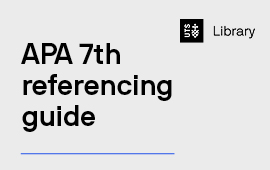UTS Library can provide advice on finding evidence for grants such as:
- Citation metrics for your track record (e.g. h index, top papers, journal rankings, Altmetrics)
- Details to include in your research data management plan or statement
Grant schemes may have specific requirements for each of these topics, so we have compiled key information to guide you in selecting and using the best evidence in your application.
AI can provide assistance with the grant application process but any AI tools should be used with caution. Check the UTS Use of AI in Research Guidelines for further information.
Metrics
ARC Discovery schemes
The Research Opportunity and Performance Evidence Statement (ROPE ) is where you will be asked to provided evidence of your activities, outputs and achievements for all National Competitive Grants Program (NCGP) schemes including ARC Discovery schemes.
Based on the assessment criteria of 2020 ARC Discovery schemes, we highlighted some tips for you to demonstrate your performance evidence.
- Research outputs: add your track record overview at the beginning to show your academic impact. The following metrics can be used for the statement.
- Number of publications and where they have been published (journal metrics and ranking), indicate highly cited papers
- Total citations and citations per paper
- h-index and/or Field-Weighted Citation Impact (FWCI)
- Who cited the papers (from highly ranked universities and top researchers).
- Auto-populate research outputs: link your ORCID account with the ARC’s Research Management System (RMS) to import a list of research outputs. See the ORCID support page (requires UTS login) for instructions.
- Policy development and advice: find citations of your research outputs from policy documents to demonstrate how your research influenced policy development.
- Research impact: include the use of your research that achieved environmental, cultural, social, or economic changes or improvements. For example, if your research or publications are used in patents or outside of academia. See Engagement and Impact for more details.
- Research collaboration: use collaboration metrics to show how you collaborated internationally and with industry.
When writing the Research Achievement and Contribution statement, you can also use metrics data (e.g. benchmarking) to present research quality and contributions to the research field in the context of discipline expectations for a research topic.
For more information about ARC funding schemes and UTS successful grants, read the ARC page on UTS Staff Connect.
ARC Discovery Projects guide provided by GrantConnect will be helpful for you to prepare your ARC grant application.
For further guidance on citation metrics, see Demonstrate your Impact.
Research data
Many funding bodies require statements that outline how the research data produced as part of a proposed project will be managed. Some of the factors that will need to be addressed include, but are not limited to, storage, access, sensitivities around data, and re-use arrangements.
If you manage your data throughout the research lifecycle using Stash, you will be able to state that your data is managed via an integrated data management system that ensures compliance with the Australian Code for the Responsible Conduct of Research. Stash also offers the ability to easily publish your data to the UTS Research Data Portal (and also made discoverable via Research Data Australia), whether openly or via mediated access.
In addition, the Australian Research Council (ARC) and the National Health and Medical Research Council (NHMRC) encourage researchers to:
- consider the ways in which they can best manage, store, disseminate and reuse research data,
- utilise institutional infrastructure and/or processes,
- deposit data arising from the research projects in publicly accessible repositories.
These requirements and expectations are consistent with the responsibilities outlined in the Australian Code for the Responsible Conduct of Research. Detailed information on researchers’ responsibilities in this area can be found in section 3 of the Management of Data and Information in Research guide.
Some suggested statements that can be included to address this section of a grant application include:
- Data management practices will follow the principles of the Australian Code for the Responsible Conduct of Research
- A research data management plan will be created and maintained using UTS Stash
- All research data will be classified according to the UTS Information Security Classification Standard and handled appropriately according to the relevant classification
- Research data will be stored on UTS approved and supported systems during and after completion.
- Data will be archived using UTS Stash.
- At the conclusion of a project, data will be made discoverable by registration on Research Data Australia and/or discipline-specific registries where applicable.
The above statements are a minimum of what needs to be addressed in this section. While it is sufficient to say that the project will follow the principles of the Australian Code for the Responsible Conduct of Research, grant applications that avoid generic wording are usually viewed more favourably.
Some considerations that could be specific to your project include:
- Infrastructure that will be used to store and preserve the data
- Protocols that will be followed to handle sensitive data
- Outline of how ethical, commercial or defence sensitivities relating to the data will be handled (such as de-identification)
- IP ownership of the data
For further guidance on research data management and using Stash, see Manage your Information and Data.
Getting help
If you need support with drafting a statement, contact the Library to arrange a consultation to discuss appropriate UTS systems and procedures.






